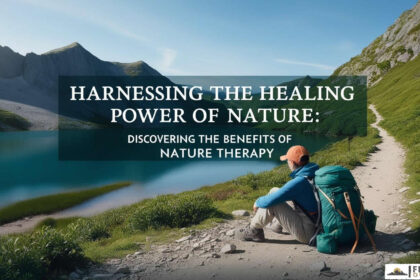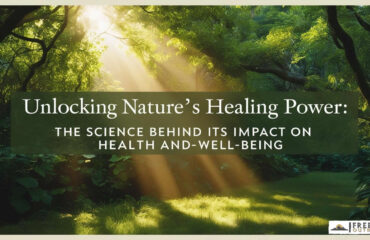
Discover how nature therapy enhances mental health through holistic practices, community engagement, and proven psychological benefits.
Understanding Nature Therapy: A Holistic Approach
Nature therapy, often referred to as ecotherapy, is a therapeutic practice that harnesses the natural environment to promote healing and enhance mental health. This approach is rooted in the belief that humans possess an innate connection to nature, a concept known as the biophilia hypothesis. When we immerse ourselves in natural settings, from lush forests to serene lakes, we can experience profound emotional and psychological benefits. Activities such as hiking, gardening, and even forest bathing contribute to this therapy, allowing individuals to reconnect with the natural world and themselves.
The growing recognition of nature therapy in contemporary therapeutic practices underscores its significance as a holistic wellness approach. By integrating physical, emotional, and spiritual aspects of health, nature therapy serves as a powerful tool for personal transformation. For instance, research indicates that individuals who regularly engage with natural surroundings often report a heightened sense of purpose and fulfillment in life, emphasizing the importance of these experiences in our daily routines.
The Psychological Benefits of Nature Exposure
The psychological benefits of spending time in nature are profound and well-documented. Studies suggest that exposure to natural environments significantly improves mood by diminishing stress and anger levels. Just a brief encounter with nature—like viewing a scenic landscape for merely 40 seconds—can enhance performance on attention-demanding tasks, showcasing its cognitive advantages. Additionally, engagement with nature correlates with reduced anxiety and depression, leading to improved overall emotional well-being.
Moreover, nature therapy has shown effectiveness in alleviating mild to moderate depression through structured outdoor activities. For instance, individuals participating in ecotherapy programs often experience long-term improvements in mood and reductions in mental distress. The therapeutic power of nature is not only about individual healing; it also fosters empathy and cooperation, creating a ripple effect that enhances social behaviors within communities.
Nature Therapy Techniques and Activities
Nature therapy encompasses a variety of techniques and activities designed to enhance mental health. One well-known practice is forest bathing, or shinrin-yoku, which involves immersing oneself in forest environments. Research has demonstrated that this practice can lower blood pressure and elevate mood, making it a valuable tool for emotional well-being. Horticulture therapy, which involves gardening, also plays a significant role in improving mental health, often utilized in rehabilitation settings to foster recovery and resilience.
Other effective activities include nature walks that combine physical activity with mindfulness, which can significantly reduce feelings of anxiety and depression. Outdoor counseling sessions integrate psychological support with nature experiences, demonstrating the synergy between traditional therapeutic methods and outdoor experiences. Engaging with animals during nature therapy, such as through pet therapy or wildlife interactions, can further enhance mental health outcomes, reinforcing the therapeutic potential of nature-based practices.
The Role of Community in Nature Therapy
Community engagement is a crucial aspect of nature therapy, as it fosters social connections and combats feelings of loneliness. Participating in nature-related volunteer activities can significantly enhance mental health by fostering a sense of belonging and shared purpose. Group activities in natural settings not only provide therapeutic benefits but also strengthen community bonds, creating supportive environments that promote emotional healing.
Community gardens, for example, serve as platforms for social interaction, where individuals come together to cultivate plants and share experiences. These shared activities contribute to improved mental health for participants, emphasizing the vital role of community in nature therapy. Group ecotherapy sessions can create shared experiences that further enhance personal growth and emotional healing, demonstrating the collective power of nature in supporting mental well-being.
Evidence Supporting Nature Therapy
Numerous studies underline the effectiveness of nature therapy in enhancing mental well-being. A pilot study conducted in Berlin found that nature-based therapy significantly improved mental health and connectedness to nature among young psychosomatic patients. Participants reported higher mental well-being scores and a greater sense of meaningfulness as they engaged in outdoor sessions, highlighting the therapeutic impact of nature.
Research also indicates that individuals living in greener neighborhoods experience better cognitive functioning and overall mental health outcomes. Children exposed to green spaces are less likely to develop psychiatric disorders later in life, further emphasizing the long-term benefits of nature interaction. The mounting evidence supporting nature therapy has prompted policymakers to recognize the importance of urban green spaces for public health, aiming to enhance access to nature by 2030.
Practical Tips for Incorporating Nature Therapy
Incorporating nature therapy into daily life can enhance mental well-being significantly. Aim to spend at least two hours in nature each week to maximize health benefits across various demographics. Accessible activities such as gardening, exercising outdoors, or simply taking mindful walks in local parks can provide therapeutic experiences. Even virtual nature experiences can yield benefits, making nature accessible for those unable to engage physically.
To weave nature into daily routines, consider taking breaks outdoors during work or engaging in nature meditation. These simple practices can improve focus and reduce stress, allowing individuals to reap the mental health benefits of nature more consistently. Utilizing local parks or community gardens can further facilitate access to nature, making it easier to integrate these therapeutic activities into everyday life.
Embracing Nature for Enhanced Mental Health and Well-Being
Embracing nature therapy can serve as a preventative measure against mental health issues, especially in urban settings where green spaces may be limited. The recognition of natural environments’ significance for public health is growing, with initiatives aimed at increasing access to green spaces by 2030. Fostering connections to nature not only benefits individual mental health but also promotes environmental stewardship and addresses challenges related to mental health and climate change.
Personal testimonials from individuals who have experienced the transformative power of nature therapy highlight its potential to enhance mental health. By combining nature experiences with traditional therapeutic methods, individuals can embark on a comprehensive journey toward emotional healing and well-being. The exploration of nature therapy opens up avenues for personal growth and resilience, encouraging everyone to reconnect with the natural world for a healthier, happier life.




